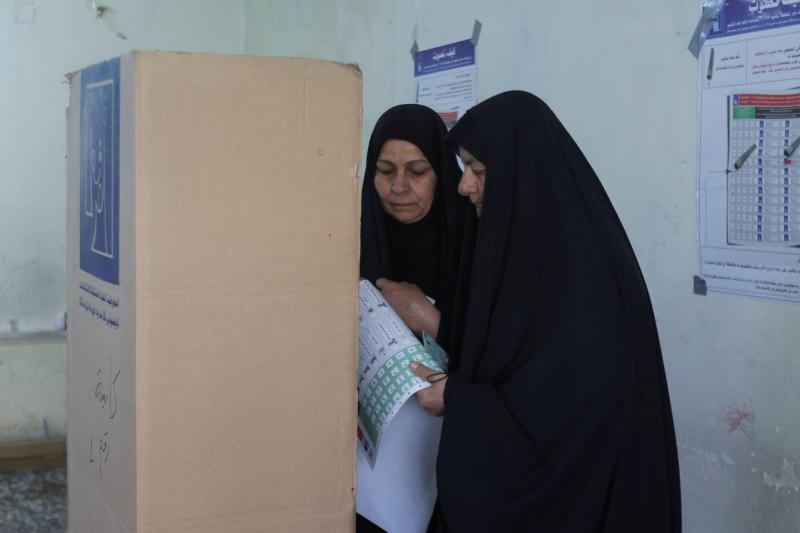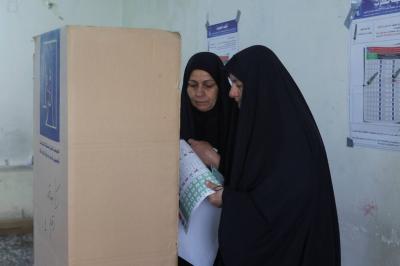Iraqi official media reported that the parties forming the ruling Shiite coalition in Iraq collectively secured at least 101 seats out of 285 available in the provincial council elections held this week, granting them the largest share. The electoral list, which includes several military political factions allied with Iran, such as Badr Organization and Asa'ib Ahl al-Haq, came in first with 43 seats, followed by former Prime Minister Nouri al-Maliki's list with 35 seats. The list featuring moderate Shiite cleric Ammar al-Hakim and former Prime Minister Haider al-Abadi received 23 seats. The victory of these three lists gives the coordination framework a total of 101 seats.
However, election observers, including Iraqi analyst Sajad Jiyad, noted that the success of smaller lists affiliated with the coordination framework likely means a total significantly exceeding 101 seats. Observers attribute the victory to the boycott of the elections by Shiite cleric Muqtada al-Sadr, who is the strongest competitor against the coordination framework. Separately, ousted Sunni Speaker of the House Mohammed al-Halbousi, who received the largest number of votes in Baghdad and Anbar Province, won 22 seats. Sunni businessman Khames al-Khanjar secured 14 seats. A number of local lists and smaller groups won the remaining seats.
The elections are viewed as an indicator of the balance of power in a country where Iran-aligned groups are steadily gaining influence. The voting comes ahead of parliamentary elections scheduled for 2025. Members of the Shiite coordination framework, which already constitutes the largest single bloc in the Iraqi parliament, competed within three main lists but announced they would govern together following the provincial council elections held on December 18, marking the first agreement of its kind in 10 years.




